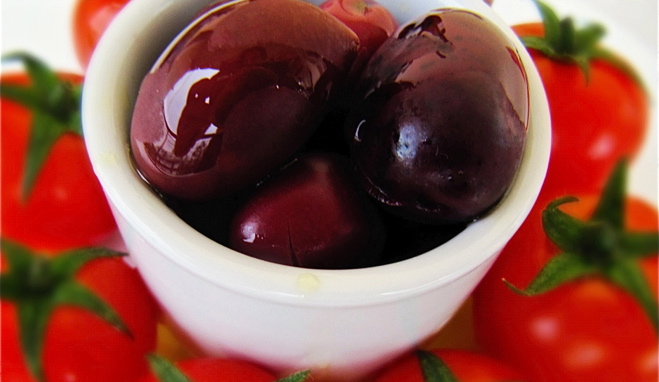Is it not Feta if it’s not made in Greece? Should Kalamata olives only come from Kalamata? Well the European Union thinks so.
In 1992 a legal framework was introduced known as Protected Geographical Status, which was developed in order to protect the reputation of regional foods, eliminate unfair competition and stop misleading consumers with non-genuine products, which may be of inferior quality and taste different. However, if you do not live in Europe, your feta is most likely not from Greece and your Kalamata olives may be from Italy or Turkey. According to a recent report from McKinsey & Company, a global management consulting firm, Greece holds only a 28% of the global ‘Greek Feta’ cheese market, which means that the rest of that 72% is not Greek and not really feta according E.U. legislation
As a consumer we want genuine products. Would you mind if a bubbly wine made in Switzerland called itself Champagne and charged a similar price for it? Most likely you would. The same concept applies to a variety of food products from all over Europe. This is done because the quality and properties are determined by the geographical environment, whose production, processing and preparation takes place within the determined geographical area.
Having said this, it is important not only from a culinary point of view but also from a nutritional perspective to taste and use products that have been produced in a specific area. Apart from the Greek olive oils that have protected names, I want to include a list of known Greek products that have Protected Designation of Origin (PDO). This means that the entire product must be traditionally and entirely manufactured within the specific region of Greece or in Greece generally, and thus has acquired unique properties in order to have the specific name and to be sold under that name in the European Union.
If you come across these products, buy them and try them:
- Feta (Cheese made in Greece)
- Tomataki Santorinis (Tomato from the island of Santorini)
- Fava Santorinis (Yellow Split Pea from the island of Santorini)
- Kaseri (Yellow Cheese made in Greece)
- Krocos Kozanis (Saffron from the area of Kozani)
- Korinthiaki Stafida Vostitsas (Raisins)
- Masticha Chiou (Natural gum from masticha trees from the island of Chios)
- Fystiki Eginas (Pistachio nuts from the island of Egina)
- Graviera Kritis (Yellow hard cheese from the island of Crete)
- Graviera Naxou (Yellow hard cheese from the island of Naxos)
- Elia Kalamatas (Black meaty olives from the area around Kalamata)
- Meli Elatis Menalou Vanillia (Honey from the area of Menalon)
- Throumba Thassou (Οlives that are left to ripen on the tree from the island of Thassos)
- Throumba Chiou (Οlives that are left to ripen on the tree from the island of Chios)
- Throumba Ampadias Reyhymnis Kritis (Οlives that are left to ripen on the tree from the island of Crete)
For a full list of all the Greek products that have protected names click here.


Kalamata is a region in Greece. You can’t label olives from other countries or regions that resemble the original Kalamata olives as “Kalamata” olives. The same should apply for yoghurts. You should name them double strained or whatever but not Greek yoghurt. It is deceptive. Plain and simple
…I should have said ‘protect and promote’ these Greek products. Just like when I open an issue of Bon Appetit, for example, and see a full page ad promoting Gruyere and that the only real Gruyere comes from Switzerland.
I wish more was done around the world to protect these Greek products. I was stunned to see ‘Kaseri’ being sold in a large supermarket chain here in the US… where was it produced? Wisconsin! Then, at Whole Foods, I saw two HPEIROS cheeses being sold, direct from Greece… One was feta, one was yidotiri (Γιδοτύρι) – but BOTH were being sold as feta, side by side, as if they were the same thing! I could go on and on…. so frustrating.
Don’t be frustrated, buy Olympus brand Greek dairy products. Whole Foods also sells Olympus Feta and Olympus Yogurts. Both are PDO (Protected Designated Origin) certified. No preservatives, artificial colors or flavorings.
Alan,
Thank you for your recommendations.
What about greek yougurt?
I am refering to the turkish-american yougurt called “chobani” that has been increasingly popular in the US by capitalizing on the good name that the greek yougurts have! Clearly its fake-greek style and look plays an important role in the company’s profile and great success!
Is it not “unfair competition” against greek businesses to allow non greek producers to advertise their (non greek in any possible way) product as “greek”?
I believe that it would be acceptable to call it “greek style” but definitely not greek!
I would really appreciate your thoughts regarding this.
Thanks
Angie
Angie,
Thank you for your comment. The term “Greek yogurt” is not protected and it appears to be used for strained yogurts. The term may have started to be used because Greek company FAGE first promoted this type of strained yogurt. So it appears to refer to a type of yogurt rather than the country of origin. This type of strained yogurt though is used in many countries particularly in the Middle East and in the Balkans which also have a very strong yogurt tradition. I write about the “Real” Greek yogurt in my post here.